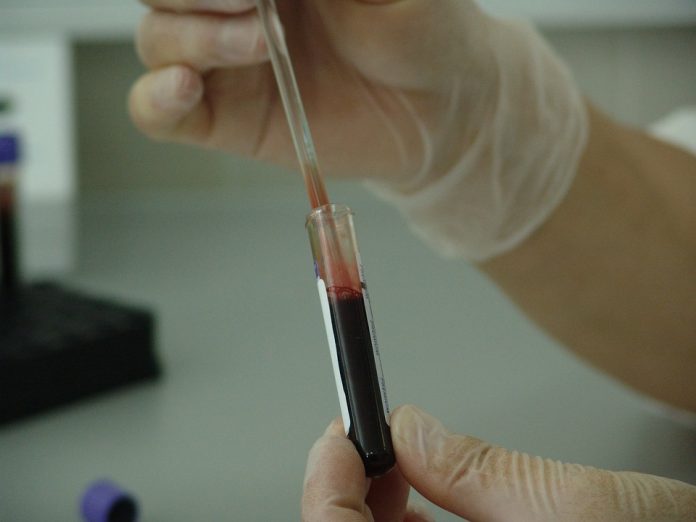TABLE OF CONTENTS
By Jacquelyn Powers, MS, LCGC
No one can exactly predict whether you will develop cancer. But there are many factors that may put you at higher risk, including your genetics.
Determining your personal cancer risk may create an opportunity for prevention, early detection, or more effective treatment.
As one of the nation’s largest genetics programs, the Penn Medicine Mariann and Robert MacDonald Cancer Risk Evaluation Program helps individuals identify, understand, and manage their chance of developing cancer.
Genetic counselors with the program see patients at various locations, including Penn Medicine Princeton Cancer Center.
Understanding Hereditary Cancer
Hereditary cancer occurs when a change in a specific gene (known as a pathogenic variant or mutation) is passed from generation to generation within a family. Inheriting this specific gene mutation causes an increased risk for certain types of cancer.
For example, the two genes most often linked to hereditary breast and ovarian cancer are BRCA1 and BRCA2. Inherited mutations in BRCA1 and BRCA2 make you more likely to develop breast and ovarian cancer, as well as prostate, male breast, and pancreatic cancers.
About 5 to 10% of diagnosed breast cancers and 20 to 25 % of diagnosed ovarian
cancers are due to inherited genetic susceptibility, according to the American Cancer Society.
While most cancers are sporadic, meaning they are random or caused by environmental factors, like age, smoking, or obesity, up to 10 % of cancers are caused by an inherited gene mutation, according to the National Cancer Institute.
What is Genetic Testing?
The American Cancer Society defines genetic testing as the use of medical tests to look for certain mutations in a person’s genes. Genetic testing can be used in many ways and is increasingly being used to look for gene changes that are linked to cancer risk. Testing is usually performed using a small amount of blood or saliva.
Genetic counseling provides individuals and their families information that they can use to
make decisions about testing and can help them understand what their test results might mean and how they can manage risk.
Who Should Consider Genetic Testing?
If you have any of the following risk factors, the National Comprehensive Cancer Network recommends considering talking to a genetic counselor about genetic testing:
- Personal history of ovarian cancer, pancreatic cancer, advanced prostate or breast cancer, or male breast cancer.
- Several relatives on one side of the family who have had the same type of cancer or a
particular cluster of cancers (breast/ovarian, colon/uterine) which could be linked to a
specific genetic syndrome. - You or a family member has been diagnosed with more than one type of cancer.
- You or a family member were diagnosed with cancer at a younger age than normal for
that type of cancer. For instance, breast or colon cancer at age 50 or younger. - A rare cancer (in you or a family member), such as breast cancer in a man or retinoblastoma.
- A particular race or ethnicity, such as Ashkenazi Jewish ancestry, which is linked to a
higher risk of BRCA gene mutations. - You or a family member has a history of many colon polyps.
- A known genetic mutation in one or more family members who have already had genetic testing.
If you have already been diagnosed with cancer, genetic testing can help establish if you have an increased risk of developing a second cancer.
How Much Does Genetic Testing Cost?
The cost of genetic testing can vary depending on the nature and complexity of the test selected.
For most patients, the out-of-pocket cost for genetic testing is minimal. In many cases, health insurance plans will cover part or all of the costs of genetic testing if they meet certain criteria.
The genetic counselor will answer specific billing and cost questions during a patient’s appointment and can provide the billing policy for their individual test.
Certain insurance plans require genetic consultation with a qualified provider prior to authorizing genetic testing. Patients are advised to check with their insurance to see if the genetic counselor is in network and if a referral to see a specialist is needed.
Managing Risk
Evaluation at the Penn Medicine Mariann and Robert MacDonald Cancer Risk Evaluation Program considers both lifestyle and inherited cancer risk.
In assessing your risk, genetic counselors analyze your medical, personal, and family history and if appropriate, offer genetic testing.
Based on your risk level, counselors will partner with you and your healthcare providers to develop a lifetime plan that includes tailored medical recommendations, risk reduction
strategies, and proactive long-term follow up care.
In addition, Penn Medicine has a dedicated research center, the Basser Center, focused on the eradication of BRCA-associated cancers, as well as clinical trial offerings specific to potential gene mutation carriers.
For more information or to make an appointment with a genetic counselor at Penn Medicine Princeton Cancer Center contact the MacDonald Cancer Risk Evaluation Center at 215-349-9093.
Jacquelyn Powers, MS, LCGC, is a certified genetic counselor and Associate Director of Genetic Counseling for Penn Medicine Mariann and Robert MacDonald Cancer Risk Evaluation Center.


